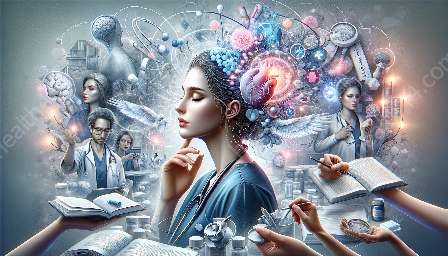When it comes to patient care, assessment and diagnosis are crucial components of the healthcare process. In both medical and nursing fields, a comprehensive understanding of patient assessments and accurate diagnosis is essential for determining the appropriate care and treatment plan. This topic cluster will explore the importance of patient assessment, the role of diagnostics, and the significance of accurate medical terminology for effective nursing practices.
The Importance of Patient Assessment
Patient assessment is the foundation of healthcare, serving as the initial step in understanding a patient's condition and needs. In nursing, patient assessment involves a systematic approach to gathering information about a patient's health status. This includes assessing vital signs, conducting physical examinations, and obtaining a comprehensive medical history.
Medical professionals use patient assessment to identify any existing or potential health issues, as well as to establish baseline data for future comparisons. Through effective patient assessment, healthcare providers can develop personalized care plans and monitor the progression of a patient's condition.
Key Components of Patient Assessment
A thorough patient assessment encompasses various components, including:
- Physical Examination: Assessing the patient's physical appearance, vital signs, organ systems, and overall health status.
- Health History: Gathering information about the patient's past and present medical conditions, medications, allergies, and family history.
- Psychosocial Assessment: Evaluating the patient's mental, emotional, and social well-being to understand the holistic aspect of their health.
- Functional Assessment: Assessing the patient's ability to perform daily activities and tasks.
By considering these key components, healthcare professionals can obtain a comprehensive understanding of the patient's health and overall well-being.
The Role of Diagnostics in Patient Care
Once the initial patient assessment is completed, the next step involves the use of various diagnostic tools and tests to aid in the accurate diagnosis of medical conditions. This phase is crucial in both medical and nursing practices, as it allows healthcare providers to confirm or rule out potential health issues. Diagnostics can include laboratory tests, imaging studies, and other specialized examinations, each providing valuable insights into a patient's condition.
Medical professionals rely on the results of these diagnostic tests to guide their clinical decision-making process. Through the interpretation of diagnostic findings, healthcare providers can formulate an evidence-based diagnosis and determine the most appropriate treatment plan for the patient.
Understanding Medical Terminology for Effective Nursing Practices
Medical terminology plays a vital role in the nursing profession, as it serves as the common language used to communicate essential healthcare information. Nurses need to be well-versed in medical terminology to accurately document patient assessments, relay information to other healthcare team members, and comprehend medical records and orders.
Effective utilization of medical terminology enhances the accuracy and efficiency of nursing practices. It allows nurses to effectively communicate with physicians, pharmacists, and other healthcare professionals, ensuring that critical patient information is conveyed accurately and comprehensively.
Conclusion
Accurate patient assessment and diagnosis are foundational elements of medical and nursing practices. By recognizing the significance of thorough patient assessments, understanding the role of diagnostics, and utilizing precise medical terminology, healthcare providers can deliver high-quality care and improve patient outcomes. A comprehensive grasp of patient assessment and diagnosis is essential for the holistic and effective delivery of healthcare services. Through continuous education and skill development in these areas, medical and nursing professionals can elevate the standards of patient care and contribute to positive healthcare experiences.


